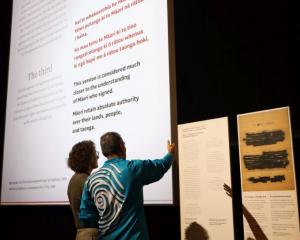
The details are among a tranche of court documents, released this morning.
An arrest warrant remains in place for Muhammad Rizalman bin Ismail, 38, who is charged with burglary and assault with intent to rape on May 9 in the Brooklyn home of Tania Billingsley, who waived her automatic name suppression earlier this week.
Rizalman was arrested on May 10. He applied for legal aid and was granted bail on the same day. Among his bail conditions were a curfew to be at his Newlands home from 7pm to 6am, not to associate with Ms Billingsley, and to surrender his passport to the Wellington District Court within two days and not to apply for travel documentation.
Prime Minister John Key was briefed on May 12, the same day the Malaysia High Commission met with the Ministry of Foreign Affairs and police to discuss the case.
At a court hearing on May 15, court records note: "At the request of police, bail conditions are removed -- [Rizalman] now at large. Issue as to whether defendant has diplomatic immunity being looked into."
A week later, on May 22, Rizalman flew back to Malaysia.
On May 29, an email from police to court officials noted that Rizalman had left New Zealand.
"The New Zealand authorities had no lawful powers to prevent Mr Ismail's departure," the email from Blake Dawson from the police prosecution service said.
By invoking diplomatic immunity, he noted that Rizalman had no immunity from New Zealand courts and police would be seeking the issue of an arrest warrant when the court heard the case May 30.
He was granted continued name suppression, but this was lifted on July 1.
In lifting the suppression, High Court Justice David Collins also said police put the Wellington District Court in an "unenviable position" by not earlier opposing continued name suppression for Rizalman.
"With the benefit of hindsight, it would have been wiser for the police to have focused on whether or not the statutory criteria for interim name suppression applied," Justice Collins said in his judgement.
The Government has admitted mistakes in handling the case. It has maintained it always wanted Malaysia to waive diplomatic immunity and for Rizalman to stand trial in New Zealand, but an unofficial communication from an Mfat official led to a belief from Malaysia that it was acceptable for immunity to be invoked. Foreign Minister Murray McCully has also been criticised for not being on top of the situation. Mfat is now reviewing how the case was managed.
Rizalman remains in a Malaysian military hospital undergoing psychological analysis, but is expected to be sent back to New Zealand to face the charges.
NZH ln











